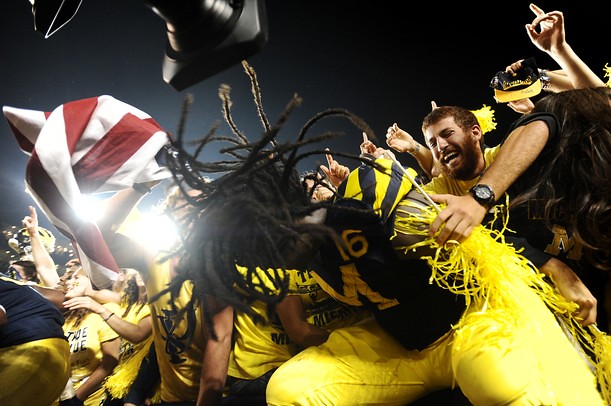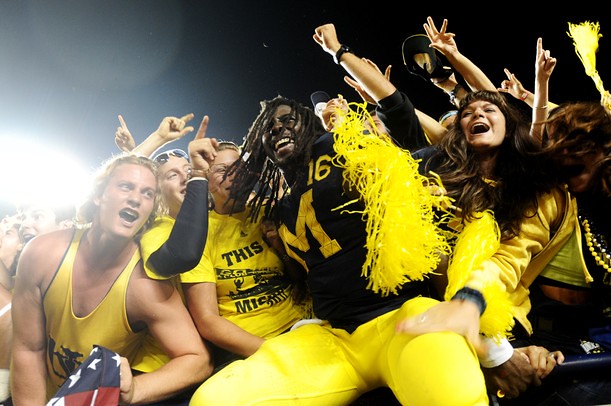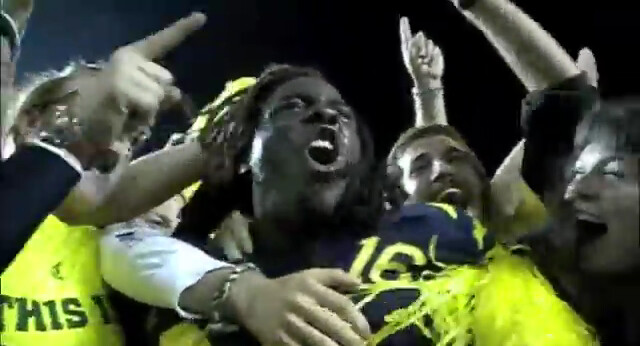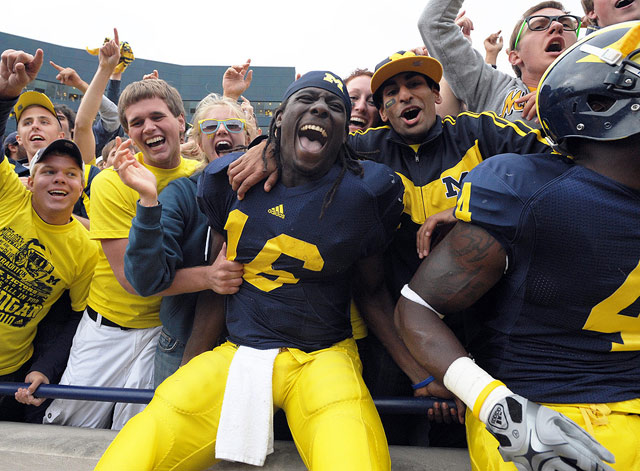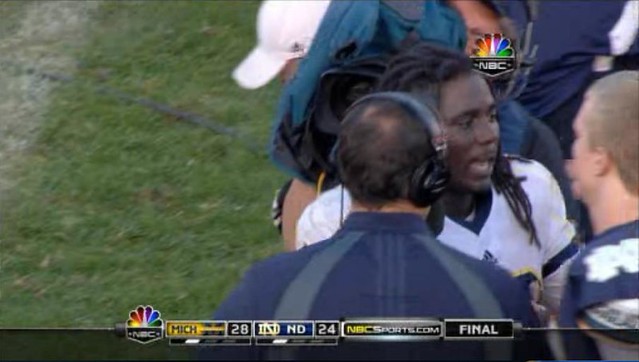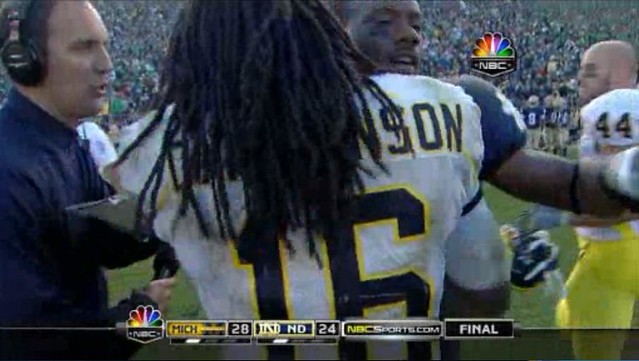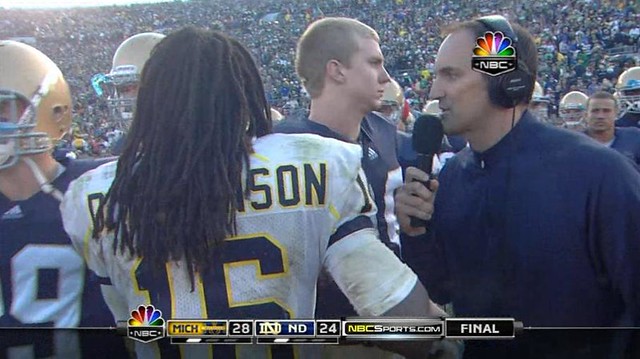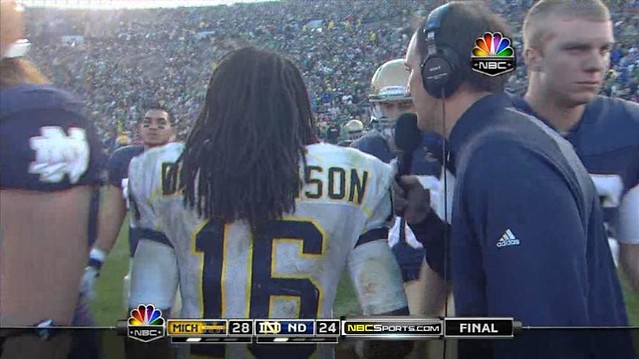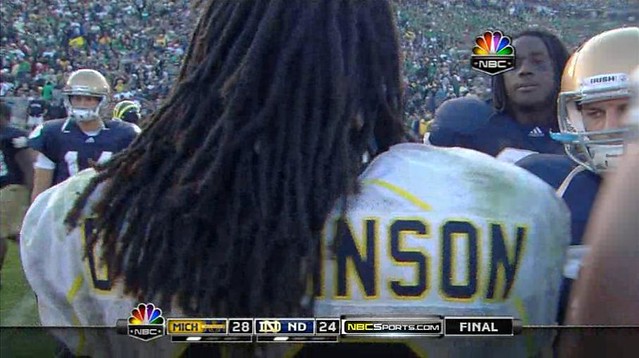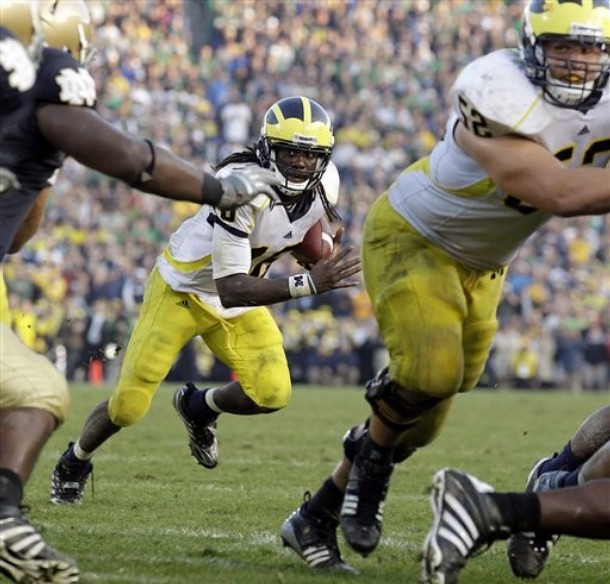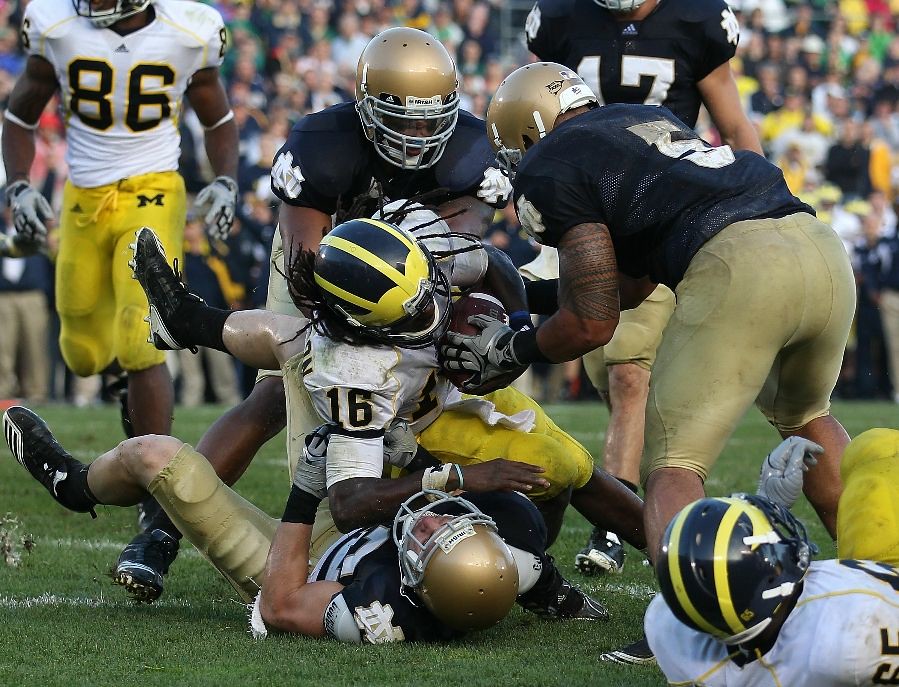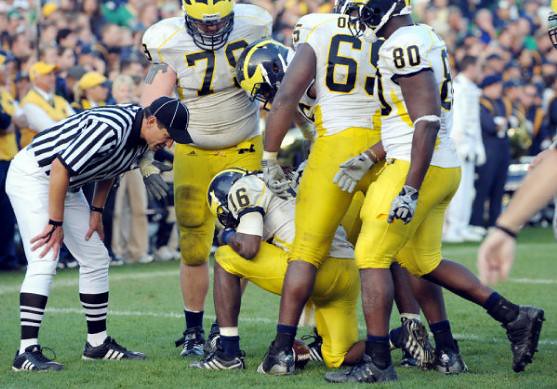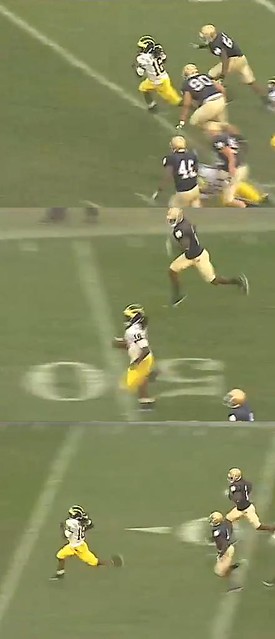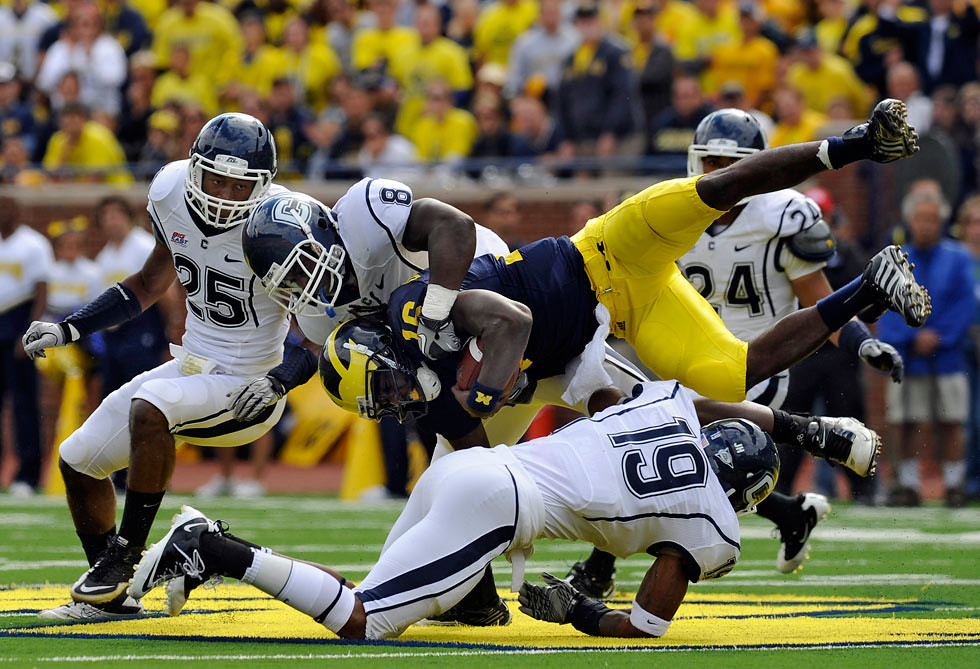YOU ARE NOT A CARPENTER
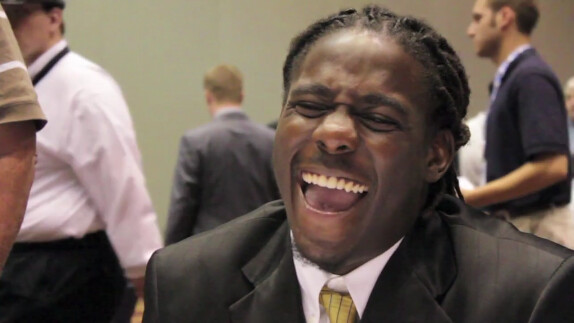
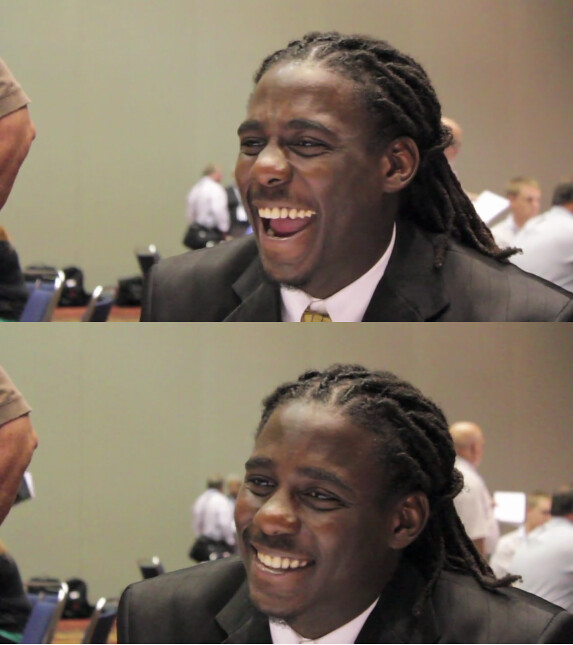
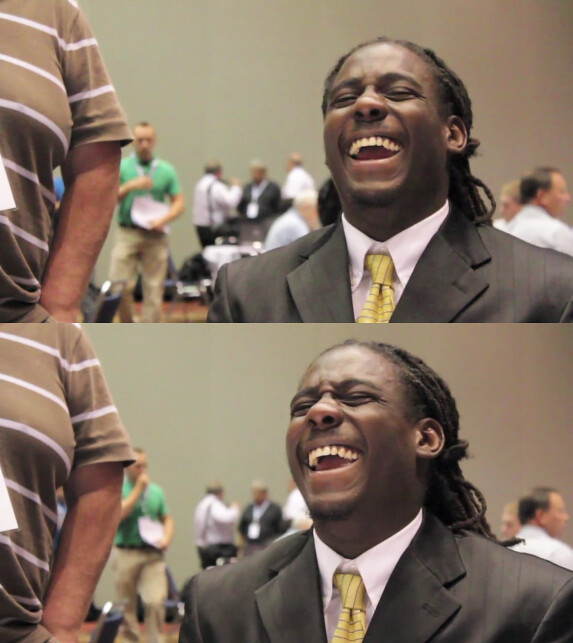
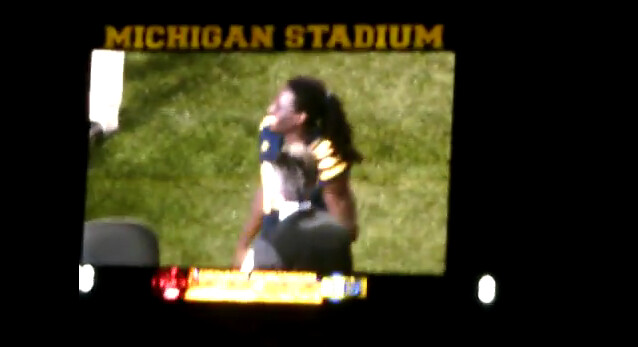
He speaks in gasps, if you can do that. In a language Patrick Omameh sometimes does not understand. Fragments of his sentences are amputated by insane joy. I just… I just… and then he is laughing and sighing incredulously. He speaks because if he did not he would probably explode. “I think we’ve kind of adapted to his … I guess, uh … method of speaking,” Omameh says. He is so permanently happy that he sometimes runs out of breath because of it. I think that in the center of Denard Robinson’s brain is a miniaturized version of himself launching off of a tire swing and into a giant ball pit. Only instead of plastic the balls are made of pure serotonin. He lands and they explode and shards are absorbed by Human Denard’s synapses. This sequence repeats like a .gif, over and over and over. It is what operates this dreadlocked instrument. And what we see on the outside is brilliant impulse, a quarterback throwing for 202 yards on four possessions.
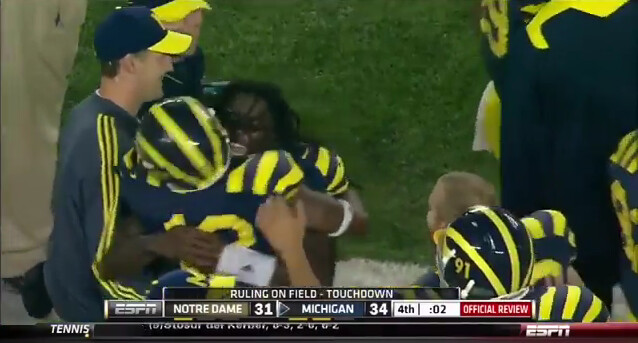
Mike Martin said that when Gallon caught that pass that Ryan Van Bergen laid down on the ground and said, “This is crazy.” Denard does not have an explanation and he does not suspect that we do either. The game ends and he is still running around. He is hopping and dancing; one hundred and ninety pounds of supercharged energy ricocheting off of the ground and brick walls and Taylor Lewan’s arms. He leaves the field and it is quiet. He returns and they howl his name. He is sitting behind a desk next to Chris Fowler. Fowler looks like he wants emphatic, fist-clenched profundities; he is hunched over slightly and saying things in his Professional Voice. He tells Denard how many yards he finished with. Denard yelps and puts his head in his hands. He doesn’t believe him. He does not believe any of this, it seems. HOW IS THIS REAL? HOW DO WE EXIST? HOW DO WE AS RANDOM, INDEPENDENT PIECES WHO MAKE CARTOON VOICES AND TATTOO MUSTACHES ONTO OUR FINGERS ASSEMBLE TO CREATE SOMETHING THAT LEAVES A HUNDRED THOUSAND PEOPLE STANDING IN A GIANT CONCRETE CRATER STARING OFF INTO THE NOTHINGNESS? DO YOU REALIZE THAT? THAT THIS IS OUR LIVES? He processes everything like a child who was looking through a kaleidoscope for the first time. The world is made of shiny colors. I play football and they let me keep playing football.
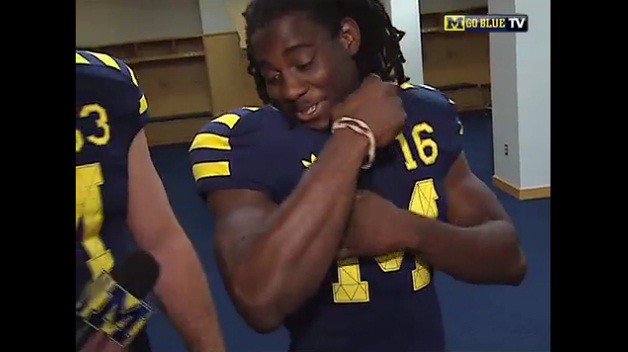
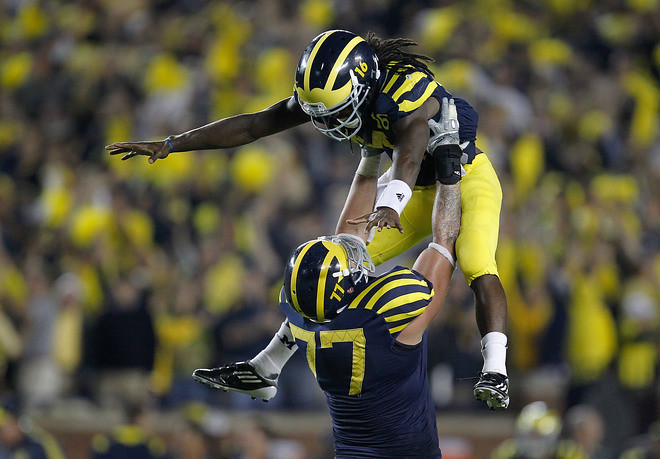
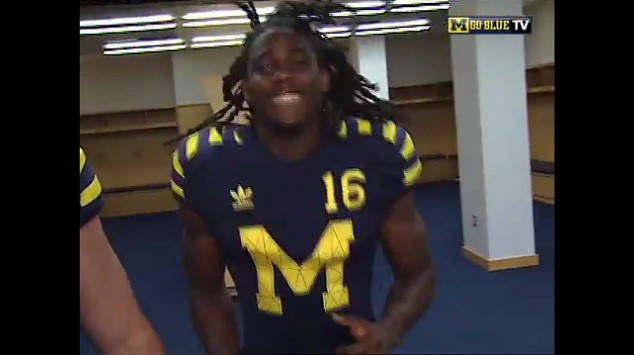
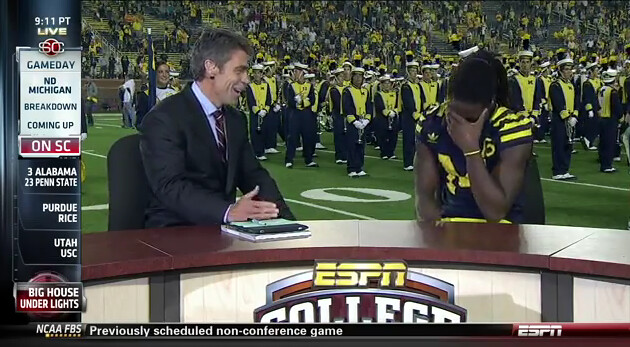
He is flawed and yet defiantly indifferent to those flaws. He is not indignant, he just does not care. Restraint is for monks and carpenters and slow-playing a nut hand. He is not a carpenter. He is a blindfolded juggler of flaming chainsaws. Sometimes he completes two passes in an entire half and we run for our lives. But most of the time we watch him and we are cross-eyed buffoons, a stained glass scene in a church window of mortals witnessing the Resurrection.
He runs a bootleg 30 yards just to get to the opposite side of the field. He was running but now he has stopped. He prepares to throw. They know he has not been good at passing tonight and that he should probably be running. He is about to pass anyway. They are chasing you; don’t you see them, Denard? But he is just standing there, completely upright, looking around. Now he is running again. Within the width of five feet he cuts past three people. Left and then right and then left again, hard stomps into the ground. The goal line is right there and he crashes into everyone who is standing in front of it.
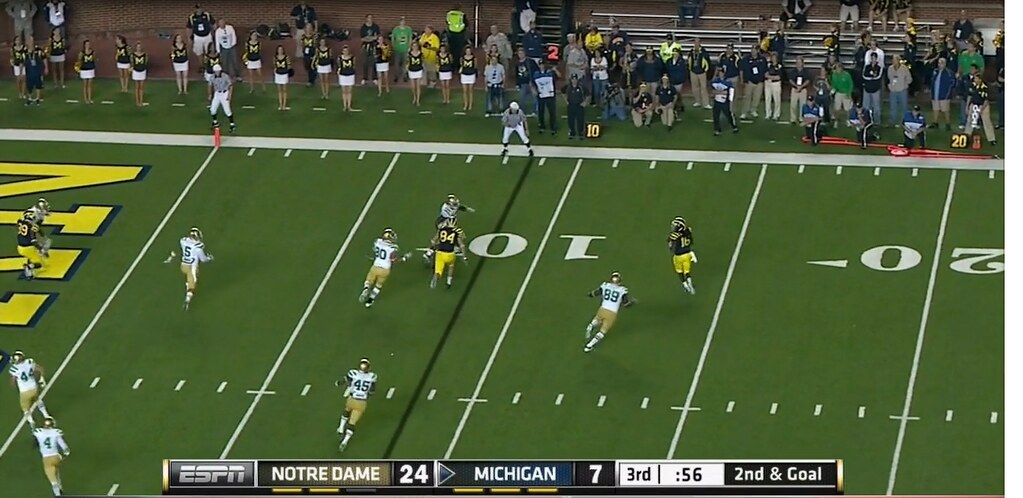
Al Borges says this: “He does a lot in there that I don’t draw on the board.” Borges does not because he could not. You would not have a job if you suggested the things that he does. He does things that are outrageous. And they are perfect. Denard Robinson does things that would be like trying to draw a sound.
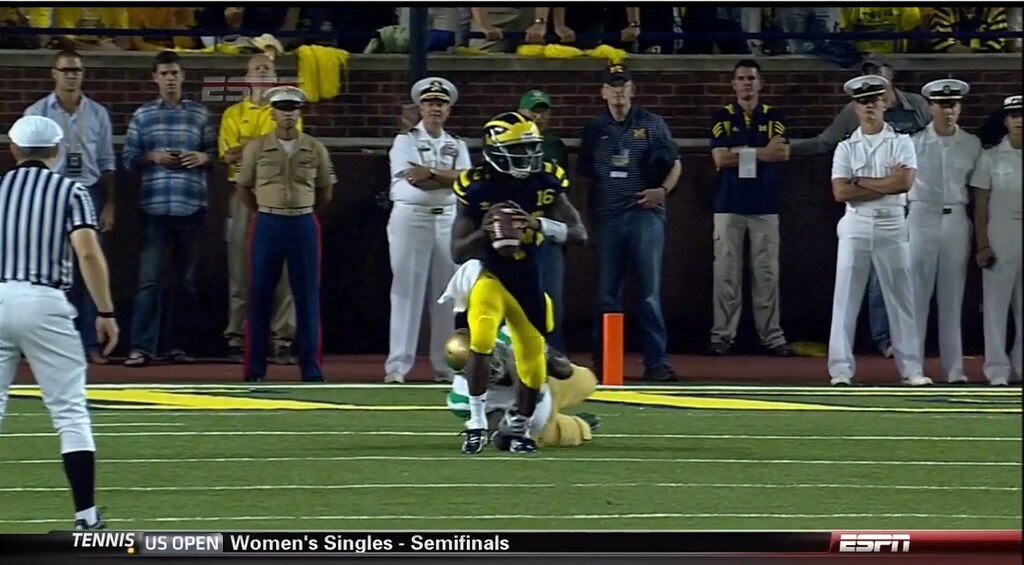
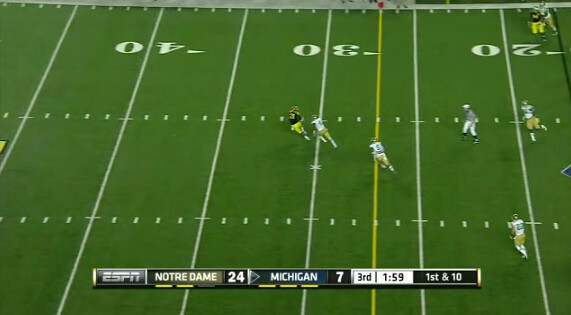
He has sustained things that seem unconditionally absurd and unsustainable. He makes decisions that are objectively bad. Borges says that they are bad. I am okay with this. That is the exchange. There are passes to places no pass should ever go because there are also inexplicably precise, 20-yard, flatfooted throws while a 300-pound man tears at his clothing and grips his ankle. Tire Swing Denard is oblivious to context. Without him we would have a preprogramed platitude dispenser. We would have every National League baseball manager. We would have your local mayor. We would have Peyton Manning.
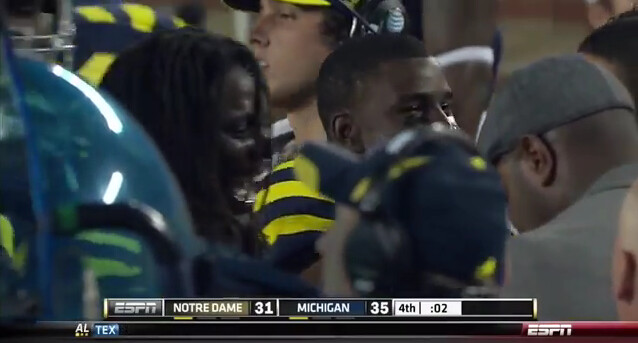
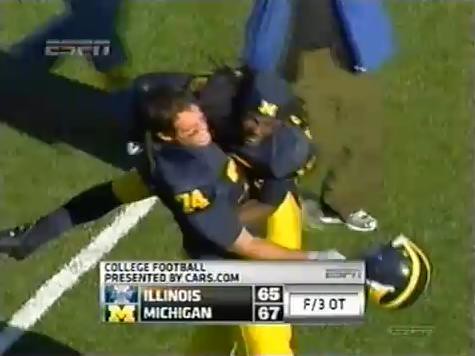
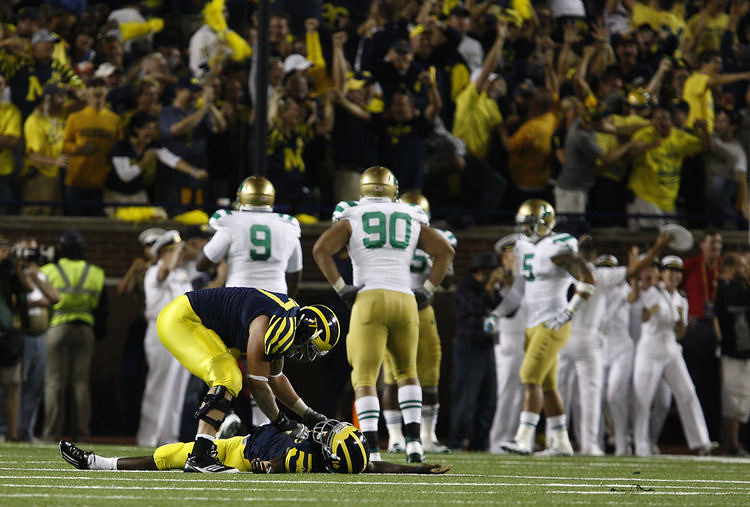
We get a walking emoticon, someone who looks at all times like he is riding a Slip ‘n Slide down the neck of a brontosaurus. Who has turned the implausible into pure farce. He is so immune to self-doubt that it is almost literally unbelievable. Where did you come from, man? He pats Manti Te’o on the helmet twice after being tackled by him and then on third-and-two runs straight into his chest for a first down. He is tiny and he is fragile but he will not run around you. He does not adhere to the conventions of this game. He politely acknowledges them and then he sets them on fire and builds castles with the ash.
Football has a spectacular way of eating you alive limb by limb. In August of 2010 Troy Woolfolk snapped his ankle and most of the cartilage and ligaments that were attached to it. He spent the season using Twitter to give pithy relationship advice and brag about his UNO victories. He watched away games on a television screen in his sterile apartment. The defense was relentlessly bad and its players were reminded of his absence only when things went wrong and they needed him, or anyone, really, to fix it. They missed him but the game was still happening. It wags its finger at you. And they are playing it and he is watching it. Football is both an identity and a terminal illness. A rhythm and a chaos and an opiate for the mind all at once. He spent a lot of time talking to his dog.
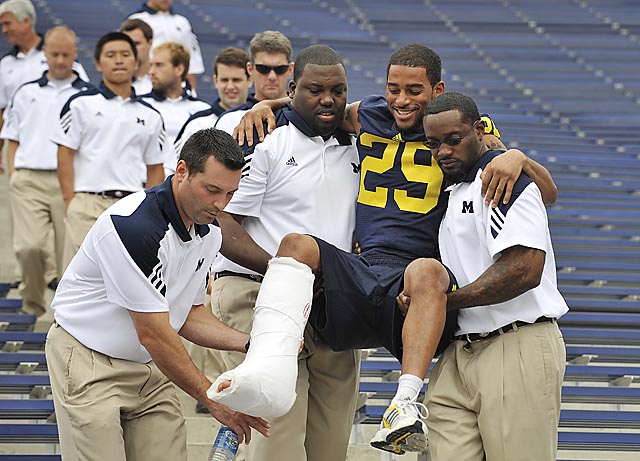
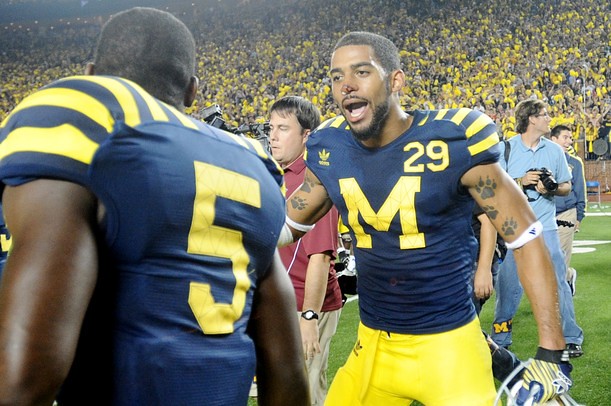
But I have also seen football turn a man into a levitating deity. He would be this same person without the game’s existence, but there would be no vehicle, no delivery. He gives us total detachment from reality, from rigid expectations. Denard Robinson comes from places covered in hot gravel and choked, yellow grass. A somewhere that looks to us like nowhere. He comes from these places:

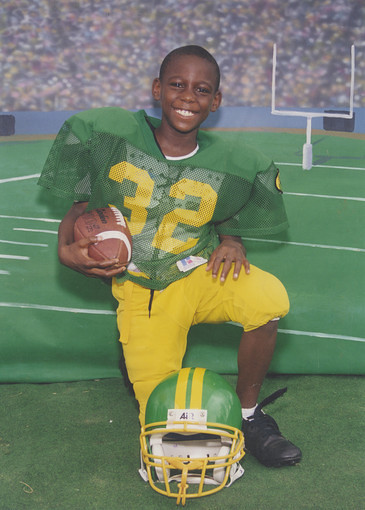

He lives here now.
